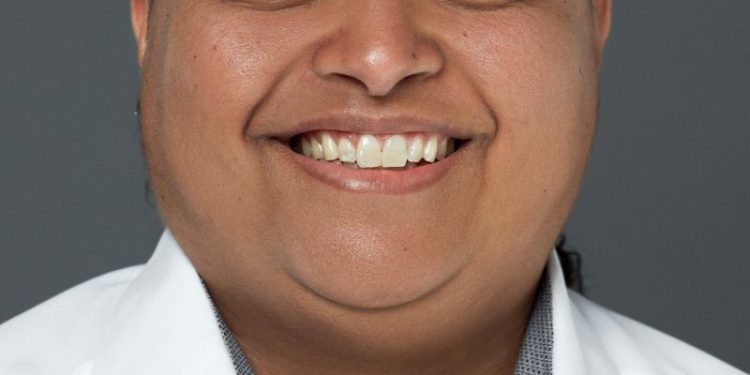Good morning Mr. Chairman, Griffiers and support staff, my colleagues in Parliament and those joining us online and via radio.
Mr. Chairman, we’re here today after a turbulent seven months, with our young country slammed by its second major crisis in three years. Our economy, not yet recovered from Hurricanes Irma and Maria, is now buckling under COVID-related blows. This struggle is made more difficult by the fact that we are now 6 months on from the 1st of March and have yet to receive concrete, tangible and SUSTAINABLE solutions from this Government. I want to stress on the word SUSTAINABLE and its importance as we continue to push through this crisis.
Sustainability means meeting our own needs without making it difficult or impossible for future generations to meet theirs. When we talk about economic development, environmental protection, social systems, healthcare, housing, pension funds and government assets…we cannot continue to talk about and treat these areas as though the world is ending and we are the last generation to need them. It’s clear that we are not, so why do we behave as though we are? This is what this faction has meant when we question the lack of proper planning for the fate of our school-going children, despite having had seven months to develop said plan. It’s what we have meant when we cautioned against the eager rush to treat country assets like Chiclets, at a time when most countries are holding onto these and focused on new ways to generate money that doesn’t involve selling the lightbulbs to pay the light bill. It’s why we have pushed to receive an economic recovery plan, and encouraged conversation, instead of conflict. Why we have championed diplomacy, instead of arrogance and, as my grandfather would say, hard-headedness, because of political and world history. Conflict is not sustainable; people cannot eat it or spend it, and that is what any rational thinking person is concerned with today.
Region-wide, we are seeing the impact of unsustainable development and decision-making as COVID has exposed that ‘auto-pilot’ governance can no longer be the order of the day. Administrations must push themselves to be more proactive and less self-centered with any efforts made to haul their respective countries out of this crisis in a responsible and yes, sustainable manner. Government spending, region-wide, is the target of fresh criticism; many administrations are ‘late to the game’ of reducing their expenditures to fight off potential crises, and we are no exception, to the point where we are then forced to make cuts we should have made since, especially, 2017. I don’t have to imagine the frustration that the average citizen feels with this merry-go-round of weak to non-existent decision making, forced reform and wild rhetoric; until January 8, I was the average citizen, working in a private sector that smiled through a black eye in 2017, only to get a second one in 2020. A private sector that continues to struggle through financial ruin and then has to deal with attacks, sometimes personal, by individuals who have not actually operated in said private sector. So, it would appear that we have issues building consensus among our own people, which does not give much hope for when we have to do it abroad and I’m not just talking about Kingdom partners. Understanding and comprehension of more than just one’s personal reality and ambitions will go a long way to developing the type of unity that we’ve heard thrown around here and in press briefings. It is our sincerest hope that we begin to operate on these concepts in the new Parliamentary year.
Mr. Chairman, with regards to the functioning of Parliament, and Government, we hope to see a departure from the recent attitudes of…fear or paranoia, towards the country’s advisory councils. The most recent situation with the Council of Advice and their advice on the proposed draft consensus Kingdom law drew comments of what was basically dismissal and disregard from some of my colleagues, including your person. On the executive side, we see a dirtying of the boundaries with regards to the Social Economic Council, the SER, and the establishment of a competing association that will more than likely skew any future reports from the SER away from its original intent. The first word in their name is SOCIAL; we tend to forget that this plays an important role as well. Interesting to note is that this new entity is not ILO-recognized, so I figure that international agency recognition only matters when it’s someone else not doing it. Fear of the very councils that are meant to provide a guiding hand as to how this country should operate is the first step on a path none of us wants to go down, so I caution both this body and Government to avoid it, as much as possible.
The only way forward is if we are all open and honest with each other, and with ourselves. If we self-reflect and see that most times, personal situations color the discussion, when actually we were elected to leave not just party politics at the door, but the personal issues as well. If we are willing to listen to understand, rather than to respond. If we change the way we engage with one another, our Kingdom partners, our neighbors to the North and the wider region and world around us. This is the second time we have this opportunity in front of us, as a young country, to make the difficult choice to change the way we have operated so far and chart a smarter and more sustainable way forward. It will take all of us, relying on one another to do the things we can and having the strength to admit when we need help, to achieve this goal of improving quality of life for everyone in this beautiful country.
Thank you, Mr. Chairman.


















